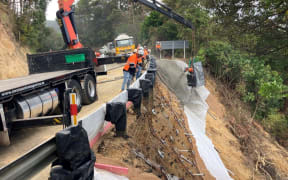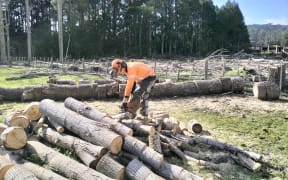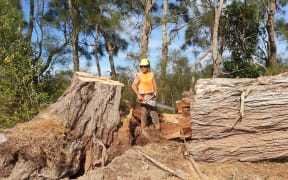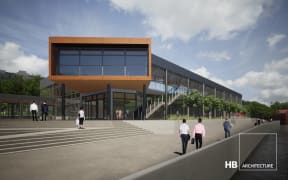
Northland Regional Council chair Tui Shortland says it is vital to reduce greenhouse gas emissions. Photo: Supplied / Northland Regional Council
A Northland council aims to switch to electric buses and tap into solar power as part of an "ambitious" plan to go carbon-zero by 2050.
Northland Regional Council (NRC) has voted to slash the organisation's carbon emissions in half by 2030 and to net zero by 2050, with the aim of achieving "climate-positive status" from 2050 on.
NRC chair Tui Shortland said the plan was "unashamedly ambitious" but analysis done so far on potential emissions reductions indicated the goal was achievable.
She said scientific evidence around human-induced climate change was unequivocal and the council, which is responsible for environmental regulations in Northland, was well positioned to display strong leadership on the issue.
"Climate change is an existential threat and therefore vital that we reduce greenhouse gas emissions as soon as possible," Shortland said.
The Northland Regional Council's move highlights the diverging views among Northland's local authorities, with the Kaipara District Council voting earlier this week to axe some of its climate-related measures.
At its September meeting, Kaipara councillors voted to discontinue the organisation's climate policy and cancel its emission accounting contract.
Kaipara mayor Craig Jepson said the move would save ratepayers about $33,000 and prevent double-ups with work already being done by central government.
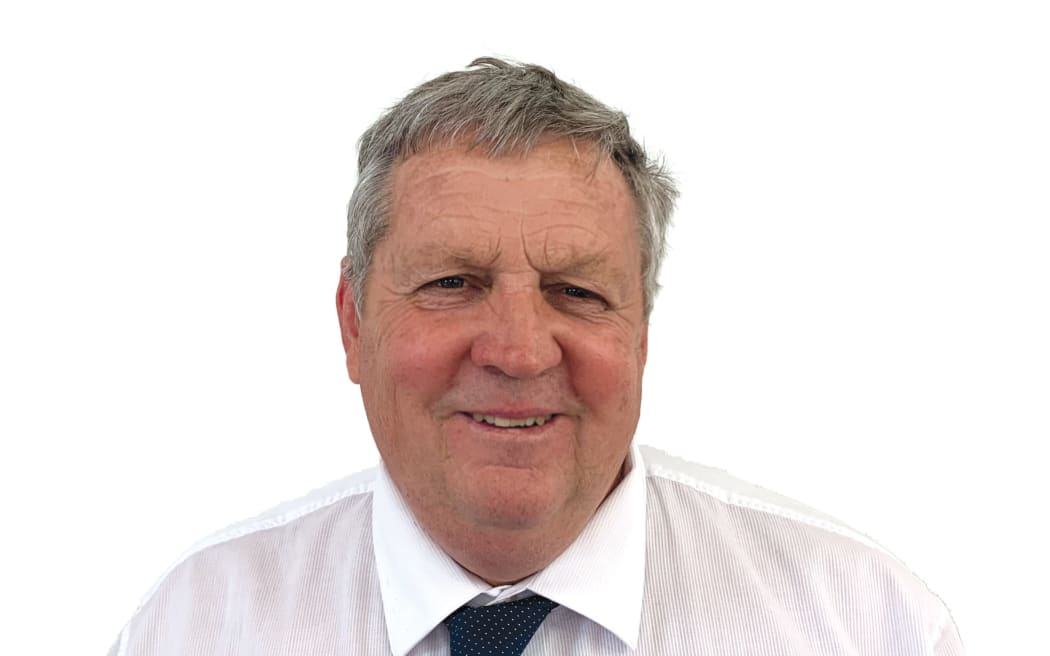
Kaipara mayor Craig Jepson says he would rather give funding to "real" activities. Photo: Supplied / Kaipara District Council
The climate policy and emission accounting had been budgeted in the council's 2021-31 Long Term Plan but there was no statutory requirement to carry out either.
Funding would, however, continue for activities that were "real", Jepson said.
"We must continually look for savings and efficiencies in our budgets wherever we can. I would rather give funding to activities that are real, actions such as supporting the Raupō Drainage Scheme, which has shown tangible benefits as evidenced in Cyclone Gabrielle earlier this year and responds directly to the effects of weather events," he said.
"It's obvious that central government covers all these issues and we are repeating a process that we don't need to."
Meanwhile, central to the Northland Regional Council's net-zero plan is the electrification of Whangārei's CityLink bus fleet by 2030.
Other possible moves include making the council's vehicle fleet fully electric and installing solar arrays to cover all electricity consumption.
The regional council currently currently has 78 vehicles, six of which are full EVs while 18 are plug-in hybrids.
Shortland said meeting the new targets would require putting "an emissions reduction lens" across all aspects of council business.
In the long term, the council would also need to develop a carbon removal/offset investment plan.
Collectively the measures could slash the council's annual carbon emissions from 1288 tonnes annually to 644 tonnes by 2030, and 128 tonnes by 2050.
Costings and detailed plans for cutting emissions had yet to be worked through, but feasibility studies would be carried out and business cases developed ahead of any significant spending.
She expected an increased budget would be sought through the long-term plan process for initiatives such as fleet electrification and a feasibility study for electrification of Whangārei's buses.
Some measures, such as installing more solar arrays, could save ratepayers money.
The emissions reduction and net-zero targets were adopted at a meeting in Kaitāia on 26 September.
"The effects of climate change will increasingly disrupt our water, land, ecosystems, people and economy and Northland communities are particularly exposed," Shortland said.
"Many of our most vulnerable community members, settlements, town centres and roads sit on coastal floodplains, exposed to sea level rise and increased flooding. Negative impacts on human health will also affect our communities."

